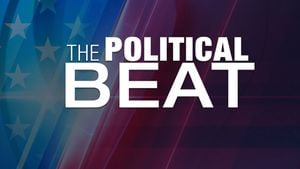The upcoming general elections in North Carolina, scheduled for November 5, have generated significant excitement, particularly concerning the closely watched race for the state superintendent position. The candidates vying for this important role are Republican Michelle Morrow and Democrat Mo Green. With a contentious backdrop, Morrow has attracted attention for her controversial past, which includes making inflammatory remarks such as calling for the execution of former President Barack Obama. As voters prepare to make informed choices, each candidate’s vision for North Carolina’s education system and their proposed solutions to current challenges is critical.
Mo Green, a seasoned educator and former executive director of the Z. Smith Reynolds Foundation, emphasizes his extensive experience in education, having previously served as the superintendent of Guilford County Schools. Green expresses deep concern regarding the underfunding of public schools in North Carolina, criticizing the increase in funding for taxpayer-funded private school vouchers at the expense of public education. He advocates for elevating teacher pay and providing adequate professional development opportunities, as he believes that educators are currently undervalued and underappreciated. Green’s overarching goal is to create a vision of excellence in education, emphasizing the need for a sustained investment in public schooling systems to ensure that every student receives a solid foundation.
The state of teacher compensation is a cornerstone issue for Green, who argues that North Carolina ranks poorly in terms of public education funding, currently sitting at 48th in the nation. His opposition to Opportunity Scholarships, which are public funds allocated for private school tuition, is rooted in the belief that these vouchers disproportionately benefit wealthier families while diverting essential resources from public schools. Green contends that maintaining a robust public education system is vital for achieving a sound, basic education for all students. In addition to advocating for improved funding and pay, he aims to implement measures for enhanced school safety by collaborating with law enforcement to ensure secure learning environments and provide mental health resources to address student needs adequately.
On the other side, Republican Michelle Morrow presents herself as a reformer from outside the traditional education system. Drawing from her background as a nurse, Morrow criticizes the current educational landscape, describing it as a failing enterprise that leaves students unprepared for adulthood. She stresses the importance of establishing a clear code of conduct in schools, improving overall classroom behavior, and ensuring better protection for both students and teachers. Morrow supports Opportunity Scholarships, arguing that they provide necessary options for parents whose assigned schools fail to meet their children’s needs. She believes that introducing competition will ultimately drive improvements across all school systems.
When it comes to issues of school safety, Morrow advocates for measurable solutions, including the deployment of a minimum of two School Resource Officers in each school and the installation of weapons detection systems. Her focus on creating the safest possible environments within schools reflects her commitment to ensure that chaos does not undermine educational effectiveness. Morrow argues that addressing behavioral issues through common-sense discipline and clear accountability can restore respect in schools, which she believes is essential for fostering an atmosphere conducive to learning.
In addressing student performance, Morrow argues that improving basic educational outcomes is more critical than simply raising test scores through lowered standards. She emphasizes the need to focus on fostering critical thinking skills among students rather than promoting indoctrination, a perspective she claims has seeped into the education system. Morrow positions herself as an outsider and a corrective voice who can bring fresh ideas and a new vision to the role. In contrasting herself with Green, she accuses him of being part of a failing bureaucratic system, asserting that his long tenure in public education has contributed to its decline.
As the elections approach, both candidates present starkly different visions for the future of North Carolina’s education system. Mo Green’s campaign focuses on enhancing public education through targeted funding, teacher appreciation, and systemic safety improvements, grounded in his extensive experience within the field. Conversely, Michelle Morrow seeks to disrupt the current educational paradigm with her outsider perspective, prioritizing safety, discipline, and parental choice through vouchers. Their contrasting platforms highlight the deep divides in educational philosophies and priorities that are likely to resonate with voters as they head to the polls. As the race heats up, the candidates’ responses to the pressing issues facing North Carolina’s educational landscape will be critical in shaping the future of the state’s schools.

